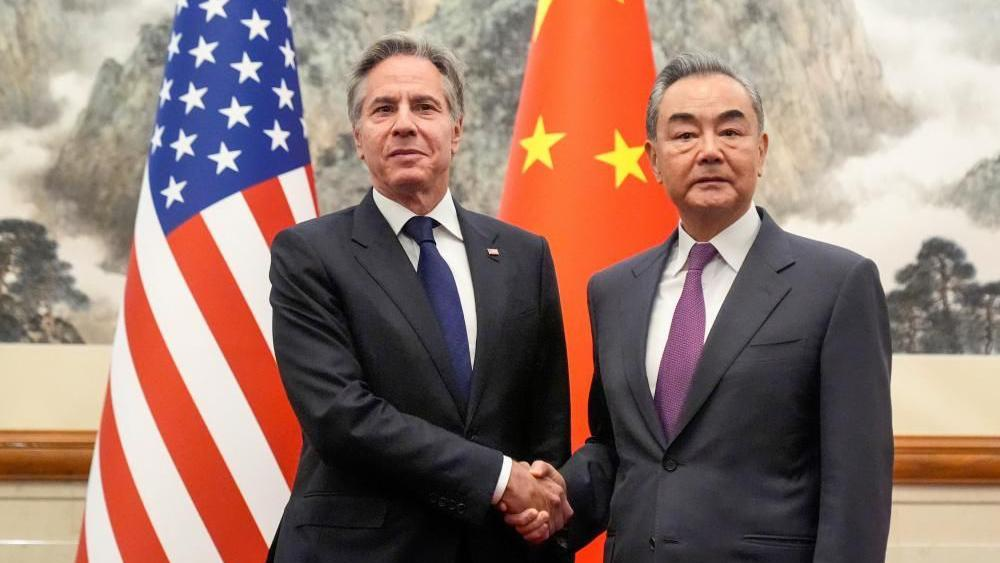Chinese Foreign Minister Wang Yi has cautioned his US counterpart, Antony Blinken, against crossing China’s “red lines” as the top diplomats of both nations convened in Beijing on Friday.
Mr. Wang acknowledged the improving stability in the China-US relationship at the onset of the meeting. However, he emphasized that the relationship is still under strain due to what he termed “negative factors.”
“Will China and the United States continue to move forward in a stable manner, or will they regress into a downward spiral?” Mr. Wang questioned.
Mr. Blinken, making his second visit to China in less than a year, is set to conclude his trip with a meeting with China’s President Xi Jinping later on Friday.
This visit marks a significant uptick in dialogue and diplomacy between the rival powers, albeit amidst chilly relations, as they strive to normalize ties after a period of heightened tension last year.
The strained ties stem from China’s territorial claims in Taiwan and the South China Sea. Earlier on Friday, Mr. Wang cautioned that the two nations could either engage in cooperation or confrontation, potentially leading to conflict.
Although he didn’t specify the challenges, he outlined China’s “red lines” regarding its sovereignty, security, and development, warning the US not to overstep.
“Negative factors in the [US-China] relationship continue to accumulate, and the relationship faces various disruptions,” Mr. Wang remarked. “China’s legitimate development rights have been unreasonably suppressed, and our core interests are under challenge.”
Mr. Blinken, in his remarks to Mr. Wang before the press, struck a more cautious tone.
He stressed that Beijing and Washington share a responsibility to advance their relationship through “active diplomacy.” However, he pledged to address their differences candidly and directly to avoid misunderstandings in what he called the world’s most significant relationship.
Some of these differences were highlighted earlier in the week when Washington approved its latest aid package, including military assistance to Taiwan. Beijing strongly criticized this move, labeling it a “serious violation of the one-China principle.”
China regards self-governing Taiwan as a breakaway province destined to return to Beijing’s control, while Taiwan considers itself a distinct entity.
Behind the scenes, the Americans have been pressuring Beijing to halt exports to Russia that allegedly aid Moscow in manufacturing weapons for its conflict in Ukraine, with sanctions looming as a potential consequence.
In a call earlier this month, US President Joe Biden and Mr. Xi discussed areas of potential cooperation, such as combating climate change and drug trafficking. However, they clashed over US support for Taiwan and trade restrictions on technology, exacerbated by a dispute over a spy balloon last February.

